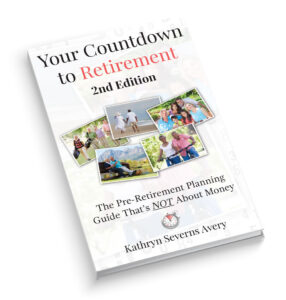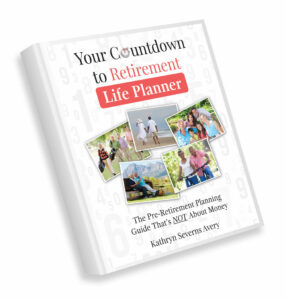It's Not Just About the Money!
Self Care
-
Author : Your Countdown to Retirement
Date : April 29, 2016
Category : Redefining Retirement
Comments : 0
Like : 0

While navigating the emotional ups and downs during the first year of retirement, self care takes on a whole new level of importance. Watching as someone struggles with sagging self-esteem and dances around the edges of depression, it is difficult is to know when to reach out and when to focus that nurturing energy on you.
Offering assistance when it’s not requested can result in the person struggling feeling more dis-empowered. I’m a nurturing person and when my husband struggles my natural inclination is to “help” him. Sometimes this increases his sense of helplessness. (She thinks I’m inept and can’t figure this out.) Other times it leads to both of us getting angry. His anger is a way to break out of helplessness. My anger stems from frustration at my attempts to help being rebuffed. During one recent attempt to help which ended in anger, I realized the best thing I could do was take the nurturing energy I was attempting to focus on my husband and focus it on myself.
Here are some tips:
First, when you realize your offered help is not wanted, disengage from the situation. This may require physically removing yourself for a period of time to allow dissipation of the emotional current that connects you to the situation. Go for a walk, get outside, clean a bathroom, do the laundry, read a book, — anything that disengages you from the situation.
Second, look for the triggers that set each of you off. For both Chris and me, it’s a sense of powerlessness. Then assess what you do have control over: your thoughts and actions. When you focus on what you do have control over, powerlessness is diminished and often disappears.
Third, find ways to nurture you not numb you. Downing a pint of Ben and Jerry’s might seem reasonable after an argument, but soothing and nurturing yourself without food, drugs, or alcohol is better for your overall health and well-being. Instead, listen to music, watch a movie, read, massage your feet or have a massage – anything that makes you feel better about you.




